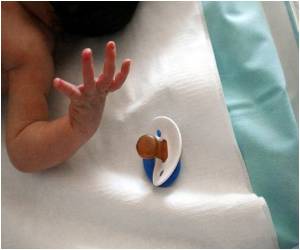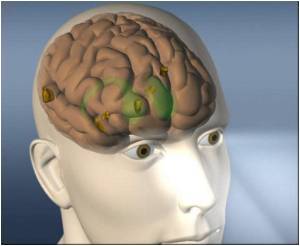
"The brain is commonly viewed as an organ that influences other organs and parts of the body, but less often as the recipient of signals coming from elsewhere, least of all, the bones," said study leader Gerard Karsenty, MD, PhD, Paul A. Marks Professor of Genetics and Development, professor of medicine, and chair of the Department of Genetics and Development.
"In an earlier study, we showed that the brain is a powerful inhibitor of bone mass accrual," he said. "This effect was so powerful that it immediately raised the question, 'Does the bone signal back to the brain to limit this negative influence?' 'If so, what signals does it use and how do they work?'"
Dr. Karsenty suspected that osteocalcin, a hormone recently identified by his lab and secreted by osteoblasts, might be involved in such bone-to-brain signaling. Earlier studies had shown that osteocalcin affects a variety of processes, such as energy expenditure, glucose balance, and male fertility. "Since most hormones influence a range of physiological processes, it was reasonable to assume that the endocrine functions of osteocalcin were even broader than what was already known," he said.
To determine whether osteocalcin did indeed play a role in the brain, Dr. Karsenty and his team studied "osteocalcin-null" mice (mice that have been genetically engineered to not produce any osteocalcin). Using these mice, they were able to show unambiguously that osteocalcin can cross the blood-brain barrier; binds to neurons in the brainstem, midbrain, and hippocampus (which is responsible for learning and memory); promotes the birth of neurons; and increases the synthesis of several neurotransmitters, including serotonin, dopamine, and catecholamine. They also found that osteocalcin-null mice had abnormally small hippocampi, a part of the brain involved in memory.
The researchers then hypothesized that the changes in neurotransmitter synthesis should alter the animals' behavior. In a series of behavioral tests, they confirmed that osteocalcin-null mice exhibit increased anxiety and depression-like behaviors, as well as impaired learning and memory, compared with normal mice.
Advertisement
When adult osteocalcin-null mice were infused with osteocalcin, their anxiety and depression did decrease, "but the infusions didn't affect learning and memory or the size of the hippocampus," said Dr. Karsenty. "This was perplexing, so we did another experiment—a postnatal knockout of osteocalcin (a genetically engineered model in which the synthesis of osteocalcin is blocked after birth). These mice were anxious and depressed but had normal memory and hippocampus structure. The unavoidable conclusion of the two experiments was that osteocalcin must act during development." This led to the second part of their study.
Advertisement
"This finding could explain some of the effects observed in children born from undernourished mothers who develop, with an unusually high frequency, metabolic and psychiatric disorders just as osteocalcin-null mice do," said Dr. Karsenty. "Malnutrition decreases the activity of bone cells; as a result, undernourished mothers have low bone mass, which affects osteocalcin production. This has clinical relevance even today, in developing countries, where maternal malnutrition is still common."
Any therapies related to osteocalcin are still years away, however, he added.
Source-Eurekalert















